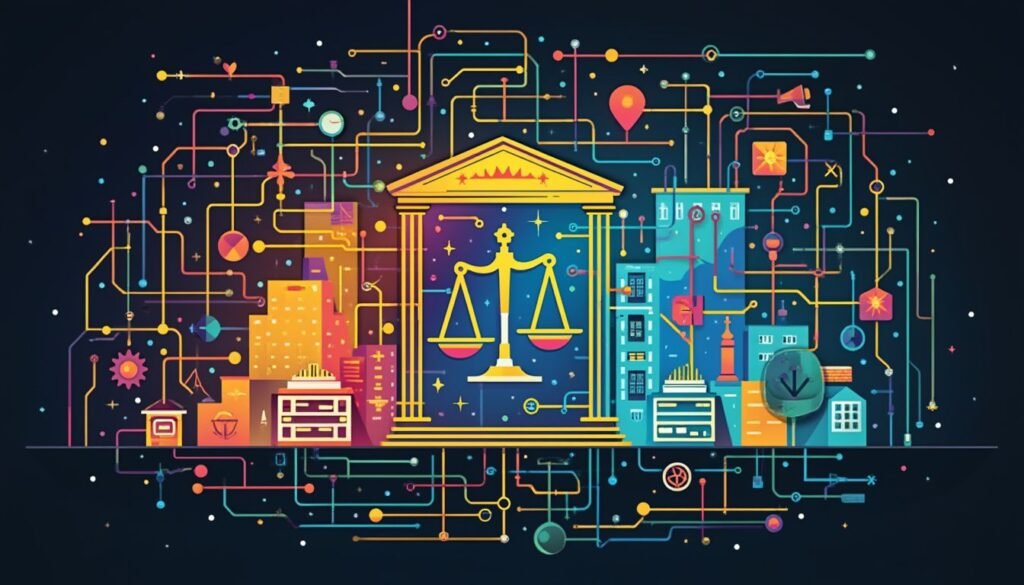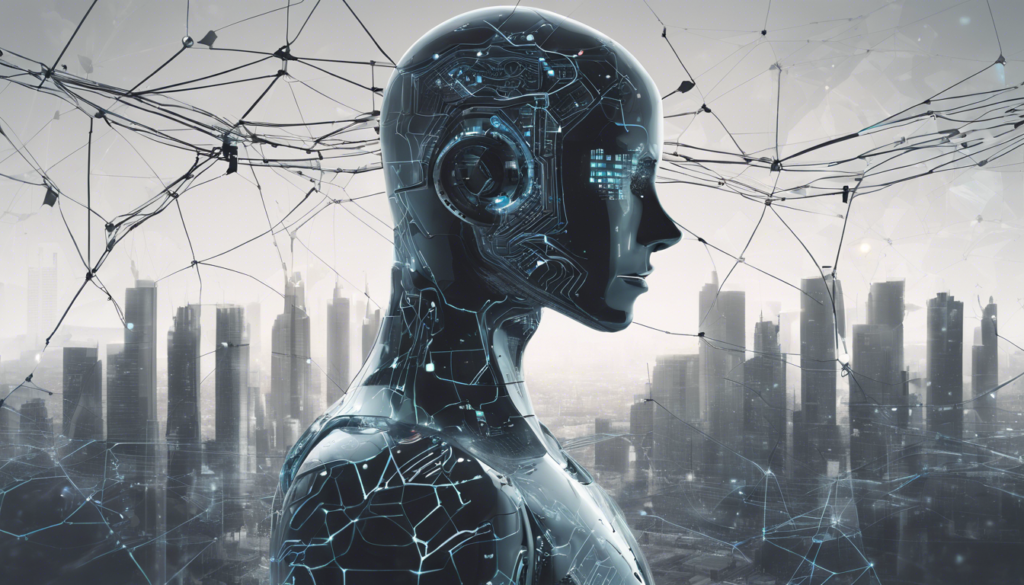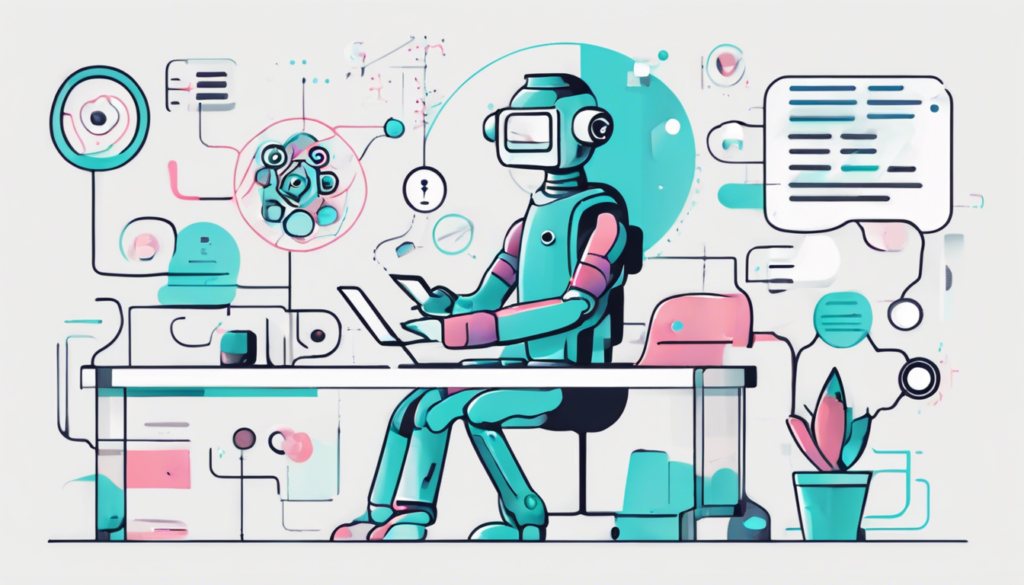The landscape of education is undergoing a radical transformation, driven by the capabilities of artificial intelligence (AI).
At the forefront of this revolution is ChatGPT, a powerful tool that is redefining how we think about learning and teaching.
As educators and professionals seek innovative ways to engage students and enhance the educational experience, the role of chatgpt for education has become increasingly prominent.
This article explores how ChatGPT is reshaping the future of learning, making education more personalized, accessible, and effective.
Key Insights
- AI is becoming increasingly integrated into the educational system, enhancing learning experiences.
- ChatGPT serves as a powerful tool for personalized learning, catering to individual student needs.
- Educators can leverage ChatGPT to access resources, create lesson plans, and provide feedback effectively.
- Despite its benefits, there are challenges and limitations to consider, such as bias and accuracy of information.
- The future of education may significantly evolve through the continued use and development of ChatGPT technology.
Introduction: The Rise of AI in Education
The rise of AI in education has transformed how educators and learners engage with information, personalize learning experiences, and enhance academic performance.
One of the standout technologies making waves in this sphere is ChatGPT for education.
This sophisticated AI tool revolutionizes traditional teaching methodologies by providing instant assistance, answering queries, and facilitating collaborative learning environments.
Educational institutions are increasingly recognizing its potential to support teachers in developing lesson plans, offering tailored feedback to students, and even creating engaging educational content.
By harnessing the capabilities of ChatGPT for education, it becomes possible to cultivate a more interactive and efficient learning atmosphere that caters to diverse educational needs, paving the way for innovative pedagogy.
What is ChatGPT and How Does it Work?
ChatGPT is a cutting-edge language model developed by OpenAI, designed to engage users in conversational exchanges and provide insightful responses across a wide array of topics.
At its core, ChatGPT leverages advanced machine learning techniques to analyze vast quantities of text data, allowing it to generate human-like text that is contextually relevant and coherent.
In the realm of education, ChatGPT for education has emerged as a transformative tool, enabling educators to enhance learning experiences by providing immediate feedback, supporting personalized learning paths, and assisting in the development of educational materials.
By integrating ChatGPT into educational settings, instructors can foster an interactive learning environment, where students can ask questions and receive real-time answers, thus facilitating deeper understanding and retention of information.
‘Education is the most powerful weapon which you can use to change the world.’ – Nelson Mandela
Enhancing Personalized Learning with ChatGPT
In recent years, the integration of technology in education has transformed the way educators approach personalized learning, and one of the most promising tools in this space is ChatGPT for education.
This advanced language model can tailor responses to meet individual student needs, making learning both engaging and effective.
By leveraging ChatGPT, teachers can create customized learning experiences that accommodate diverse learning styles and paces.
For instance, educators can utilize ChatGPT to generate personalized quizzes, offer instant feedback on assignments, or even provide explanatory resources that cater to a student’s specific queries.
Moreover, ChatGPT can assist in developing interactive lesson plans, ensuring that students remain engaged and motivated.
As educational institutions strive to enhance personalized learning approaches, the incorporation of ChatGPT for education not only fosters a more adaptive learning environment but also empowers educators to focus on what truly matters – nurturing student potential.
ChatGPT as a Resource for Educators
As educators continually seek innovative methods to enhance the learning experience, ChatGPT for education emerges as a transformative resource.
This AI-powered tool facilitates personalized learning by providing students with immediate access to information, encouraging engagement, and enabling them to explore topics at their own pace.
Educators can leverage ChatGPT to generate lesson plans, create interactive quizzes, or even assist in brainstorming sessions, allowing them to focus more on teaching rather than administrative tasks.
Furthermore, ChatGPT can serve as a virtual tutor, supporting students outside of school hours and helping them reinforce their understanding of complex subjects.
By integrating ChatGPT into educational practices, teachers can improve student outcomes and foster a more dynamic classroom environment.
Challenges and Limitations of Using ChatGPT in Education
While ChatGPT for education offers significant potential in enhancing learning experiences, several challenges and limitations must be acknowledged.
One of the primary concerns is the accuracy of the information it provides.
ChatGPT can generate responses based on a wide array of data, but it may not always offer the most current or factual information, leading to the risk of disseminating misinformation within educational contexts.
Furthermore, the lack of contextual awareness in ChatGPT means that it may struggle to understand nuanced questions or topics, which can hinder its effectiveness as a learning tool.
Additionally, reliance on AI for educational purposes raises ethical questions, particularly regarding data privacy and the replacement of human interaction in the learning process.
Lastly, educators must also consider the digital divide; not all students may have equal access to AI technologies, potentially exacerbating existing inequalities in education.
Navigating these challenges is essential for effectively integrating ChatGPT for education in a manner that enhances learning while ensuring accuracy and equity.
Frequently Asked Questions
What is ChatGPT and how can it be used in education?
ChatGPT is an advanced AI language model developed by OpenAI that can generate human-like text responses.
In education, it can be used as a tutoring tool, answering students’ questions, providing explanations on various topics, and assisting in personalized learning.
How does ChatGPT enhance personalized learning?
ChatGPT enhances personalized learning by adapting its responses to individual student needs, learning styles, and paces.
It can provide tailored resources, feedback, and assistance, making learning more interactive and engaging.
What are some challenges of using ChatGPT in educational settings?
Some challenges include the potential for misinformation, lack of emotional intelligence, dependency on technology, and concerns regarding data privacy and security.
Educators must also ensure that students understand the limitations of AI.
In what ways can educators utilize ChatGPT as a resource?
Educators can use ChatGPT for creating lesson plans, generating quizzes, providing instant feedback on assignments, and facilitating discussions.
It can also serve to streamline administrative tasks and offer additional support for students.
What is the future of ChatGPT in education?
The future of ChatGPT in education looks promising, with potential advancements in AI technology leading to more sophisticated learning tools.
It may play a crucial role in personalized education, helping to bridge gaps and improve access to information.






